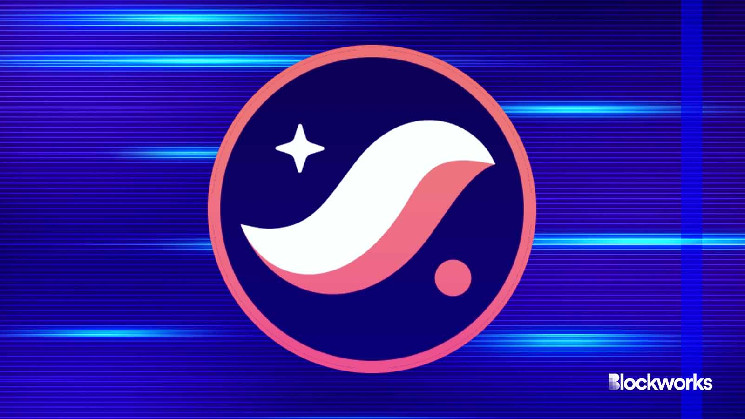The community that governs Starknet has overwhelmingly voted to implement the latest version of Starknet Alpha v0.13.0.
Poll results show that over 99.8% of voters supported the proposal, which will launch Starknet’s third official protocol upgrade on mainnet on Jan 10.
Previous versions of Starknet Alpha v0.13.0 were deployed on the Goerli testnet and Sepolia testnet in early December.
Starknet is a prominent Ethereum layer-2 scaling solution based on zero-knowledge cryptography. It uses zk-STARKs to prove the validity and integrity of computations on Ethereum.
The team raised a $100 million series D in May 2022, led by Greenoaks Capital and Coatue. It currently has a TVL of $145 million and a monthly transaction volume of $4.96 million, according to information available on L2Beat.
This latest version of the protocol will set the scene for a new transaction version, one that enables fees to be paid in STRK or ETH. It will also enable reduced transaction fees, Eli Ben-Sasson, the co-founder and president of StarkWare, the infrastructure team behind Starknet, told Blockworks.
“Starknet token will not be noticed at first; wallets are still integrating it and there’s a lot of other infrastructure work that needs to be finalized, but at some point, when the token is transferable, users will be able to pay fees not just in ETH but also in STRK,” he said.
STRK is not yet publicly available for purchase or trading, but community members speculate that an airdrop is imminent.
The Starknet Foundation plans to distribute 1.8 billion STRK tokens to various teams that are building and driving adoption on its blockchain network.
Read More: Starknet Foundation teases STRK token airdrop
“Even though STRK itself is not transferable, [this upgrade] will allow it to do so from a technical point of view, so that when it turns on at a later point in time the infrastructure is ready,” Ben-Sasson said.
Ben-Sasson explains that because of the reliance on Ethereum for data availability, transaction fees on Starknet today remain relatively quite high, averaging around $0.39, according to Starkscan.
Immediately following the mainnet upgrade, transaction costs will be reduced by between 25% to 50%, Ben-Sasson said.
“That is not the end of cost reduction. Very soon, EIP-4844 is going to be turned on, on Ethereum. That will dramatically reduce cost even more because data availability costs will be going down,” he said.
Read More: Ethereum’s Next Upgrade To Focus on Blobs
On top of this, Ben-Sasson notes that in the near future, there are plans to introduce a fee-congestion market for when capacity is outpaced by demand.
 blockworks.co
blockworks.co
